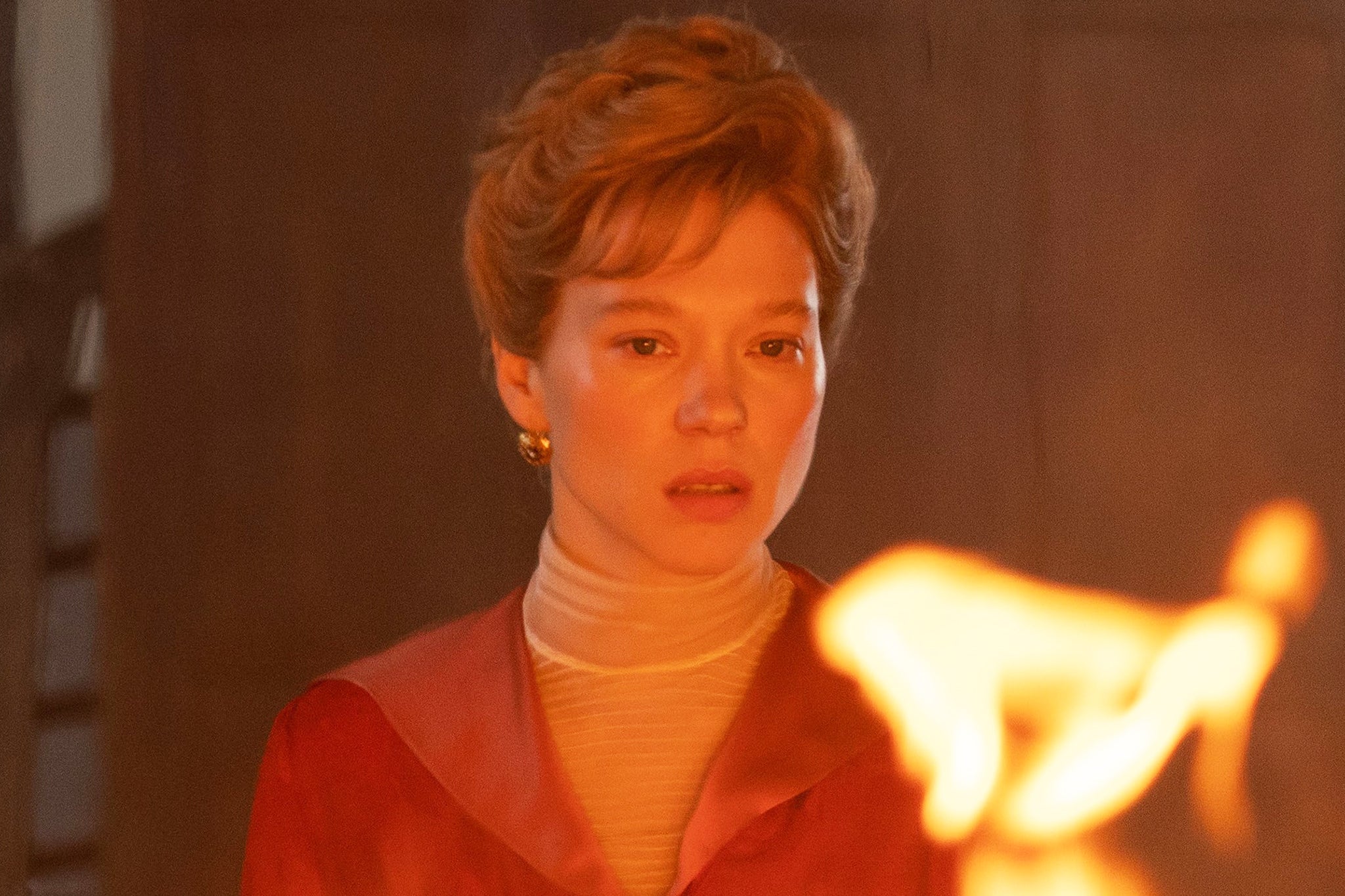The Beast review: Léa Seydoux leads a mesmeric blend of sci-fi, horror and romance
The works of French filmmaker Bertrand Bonello are designed to provoke – and this time-hopping drama, co-starring George MacKay, is no different
Your support helps us to tell the story
From reproductive rights to climate change to Big Tech, The Independent is on the ground when the story is developing. Whether it's investigating the financials of Elon Musk's pro-Trump PAC or producing our latest documentary, 'The A Word', which shines a light on the American women fighting for reproductive rights, we know how important it is to parse out the facts from the messaging.
At such a critical moment in US history, we need reporters on the ground. Your donation allows us to keep sending journalists to speak to both sides of the story.
The Independent is trusted by Americans across the entire political spectrum. And unlike many other quality news outlets, we choose not to lock Americans out of our reporting and analysis with paywalls. We believe quality journalism should be available to everyone, paid for by those who can afford it.
Your support makes all the difference.The future presented in The Beast, Bertrand Bonello’s mesmeric blend of sci-fi, horror and romance, feels frighteningly plausible. In the wake of disaster, AI has taken on the responsibility of running civilisation, leaving 67 per cent of humanity unemployed. Decisions, now, are made entirely without bias or empathy, so that when Gabrielle (Léa Seydoux) attempts to seek more fulfilling work, she’s forced to undergo a process of “purification”, in which her past lives, and all their inherited trauma, are scrubbed clean from her DNA.
The notion that we carry our ancestors’ sorrows, one proposed by certain corners of the scientific community, is an unnerving one. Here, the French filmmaker suggests it may be the true explanation for the amorphous “beast” once described in a Henry James novella. Its story concerns a man who rejects love and stability because he’s convinced some terrible catastrophe, moving unseen like a creature in the jungle, will one day strike him down. Gabrielle feels the same, and in Bonello’s sad, unshakeable film, it’s suggested that perhaps her fears are justified – some of us, it seems, are simply fated to be plagued by the same, cyclic miseries.
There are three timelines at play here: the future, in 2044; the present(ish), in 2014; and the past, in 1910. In all three, there is a Gabrielle and there is a Louis (George MacKay, who took on the role after the death of Gaspard Ulliel, to whom this film is dedicated). In the 1910 sections, Bonello comes the closest to plainly adapting James’s novella, 1903’s The Beast in the Jungle. We’re in Paris, during the Belle Époque, and Gabrielle is an accomplished pianist who denies Louis’s advances in an attempt to stave off the doom. MacKay supplies dignified, courtly yearning – in one scene he snaps his eyes shut and you can almost see, dancing across his features, the daydream of leaning across to kiss Gabrielle’s lips.
In 2044, Louis is another candidate for the process of purification, another soul pledged to never feel a true and powerful emotion ever again. But it’s in the contemporary section, in 2014, that Bonello best deploys his web of Lynchian symbols – each timeline, in some way, features a clairvoyant, a bird as the harbinger of ill, and a doll as a totem of innocence (in the future, it’s an android played, with poignant restraint, by Saint Omer’s Guslagie Malanda).
In 2014, self-imposed isolation, when mixed with hatred and entitlement, turns dangerous – in a way that suggests that, while fear and loneliness are part of the universal experience, social hierarchy tends to dictate what people choose to do with those emotions. Here, Gabrielle is an actor in Los Angeles, paid to replicate extreme emotions against an endless void of green screen. Louis, meanwhile, is a violent misogynist, whose video manifestos could almost be direct translations of those made by the man who shot and murdered six people in Santa Barbara, California, on 23 May 2014. McKay finds the necessary, chilling balance between disturbing and deeply pathetic. Seydoux’s terror, in response, seems infinite – inviting in all that is material and immaterial, simultaneously becoming a woman living in everyday fear of men, and a woman in touch with some primordial knowledge of her own mortality.

Bonello, whose films – among them Nocturama and Zombi Child – are made to provoke, does not leave us entirely hopeless. In 2044, Gabrielle faces a hard bargain: would permanent serenity be worth the loss of every great piece of art made by those brave enough to face their pain? As she insists, in 2014: “There must be beautiful things in this chaos.” The Beast does its best to seek them out.
Dir: Bertrand Bonello. Starring: Léa Seydoux, George MacKay, Guslagie Malanda, Dasha Nekrasovai. Cert 15, 145 mins
‘The Beast’ is in cinemas from 31 May

Join our commenting forum
Join thought-provoking conversations, follow other Independent readers and see their replies
Comments